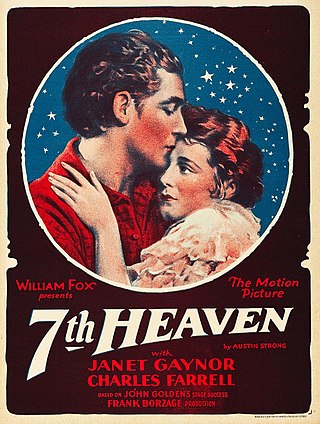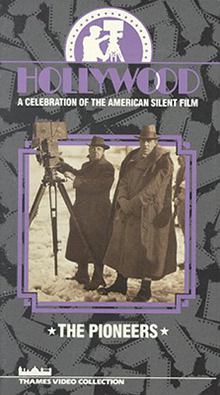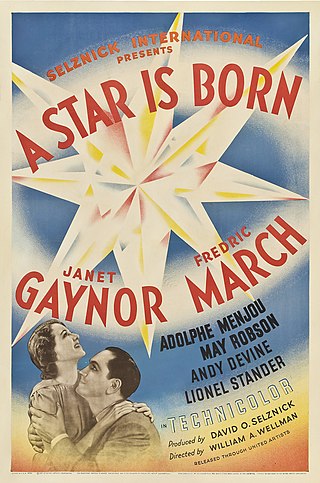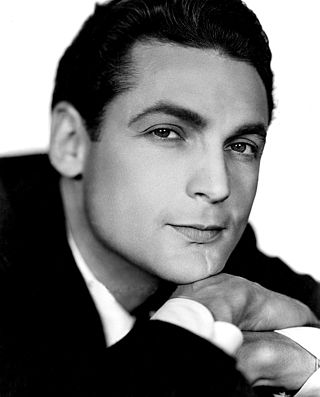External links
Films directed by Leo McCarey | |
|---|---|
|
| | This article about a short silent comedy film is a stub. You can help Wikipedia by expanding it. |
| All Wet | |
|---|---|
| Directed by | Leo McCarey |
| Produced by | Hal Roach |
| Starring | Charley Chase |
| Cinematography | Len Powers [1] |
Production company | |
| Distributed by | Pathé Exchange [1] |
Release date |
|
Running time | 10 minutes |
| Country | United States |
| Languages | Silent film English intertitles |
All Wet is a 1924 American film starring Charley Chase and featuring William Gillespie, 'Tonnage' Martin Wolfkeil and Jack Gavin. [1] It also featured an uncredited appearance of the future star Janet Gaynor in one of her very first roles. [2]
Jimmie Jump is a boarder who receives an urgent telegram telling him to pick up a large shipment from the train station at exactly 2:30 p.m. the following Wednesday. On the appointed day, Jimmie has great difficulty getting to the station in his Ford Model T: enroute, the vehicle becomes stuck in mud, is sunk in a lake, then torn apart by a tow truck. To add insult to injury, Jimmie is cited for illegal parking. Ironically, he discovers that his errand was performed on the wrong day. [3]
All Wet was shot over the course of seven days at Hollenbeck Park, near downtown Los Angeles. [5]
In a contemporary review of the film, Thomas C. Kennedy wrote, "When it comes to comedy of the clean-cut, theatrically effective sort, there is no surer hand in the realm of short subject specialists than Charles Parrott." [6]
The main gag of the car stuck in the watery ditch was remade by Chase in the 1933 talkie short Fallen Arches. [7] In his book, Hooked on Hollywood: Discoveries from a Lifetime of Film Fandom, critic Leonard Maltin wrote that this "hilarious" scene triumphed over the remake partly because "the reality of a talking world couldn't accommodate bizarre or surreal sight gags". [8]

Janet Gaynor was an American film, stage and television actress as well as an accomplished oil painter.

7th Heaven is a 1927 American synchronized sound romantic drama directed by Frank Borzage, and starring Janet Gaynor and Charles Farrell. While the film has no audible dialog, it was released with a synchronized musical score with sound effects using the Movietone sound system. The film is based upon the 1922 play Seventh Heaven, by Austin Strong and was adapted for the screen by Benjamin Glazer. 7th Heaven was initially released as a standard silent film in May 1927. On September 10, 1927, Fox Film Corporation re-released the film with a synchronized Movietone soundtrack with a musical score and sound effects.

Charles Joseph Parrott, known professionally as Charley Chase, was an American comedian, actor, screenwriter and film director. He worked for many pioneering comedy studios but is chiefly associated with producer Hal Roach. Chase was the elder brother of comedian/director James Parrott.

Charley Varrick is a 1973 American neo-noir crime film directed by Don Siegel and starring Walter Matthau, Andrew Robinson, Joe Don Baker and John Vernon. Charley Varrick was based on the novel The Looters by John H. Reese and is the first of four consecutive films Matthau appeared in that were not comedies.

Hollywood is a British television documentary miniseries produced by Thames Television and originally broadcast on ITV in 1980. Written and directed by film historians Kevin Brownlow and David Gill, it explored the establishment and development of the Hollywood studios and their cultural impact during the silent film era of the 1910s and '20s. At the 1981 BAFTA TV Awards, the series won for Best Original Television Music and was nominated for Best Factual Series, Best Film Editing and Best Graphics.

Bess Flowers was an American actress best known for her work as an extra in hundreds of films. She was known as "The Queen of the Hollywood Extras," appearing in more than 350 feature films and numerous comedy shorts in her 41-year career.
The following is a complete list of the 220 Our Gang short films produced by Hal Roach Studios and/or Metro-Goldwyn-Mayer between 1922 and 1944, numbered by order of release along with production order.

What Price Hollywood? is a 1932 American pre-Code drama film directed by George Cukor and starring Constance Bennett with Lowell Sherman. The screenplay by Gene Fowler, Rowland Brown, Jane Murfin and Ben Markson is based on a story by Adela Rogers St. Johns and Louis Stevens. The supporting cast features Neil Hamilton, Gregory Ratoff, Brooks Benedict, Louise Beavers and Eddie "Rochester" Anderson.

Margaret Lindsay was an American film actress. Her time as a Warner Bros. contract player during the 1930s was particularly productive. She was noted for her supporting work in successful films of the 1930s and 1940s such as Baby Face, Jezebel (1938) and Scarlet Street (1945) and her leading roles in lower-budgeted B movie films such as the Ellery Queen series at Columbia in the early 1940s. Critics regard her portrayal of Nathaniel Hawthorne's Hepzibah Pyncheon in the 1940 film The House of the Seven Gables as Lindsay's standout career role.

Olive Mary Borden was an American film and stage actress who began her career during the silent film era. She was nicknamed "the Joy Girl", after playing the lead in the 1927 film of that same title. Borden was known for her jet-black hair and stunning overall beauty.

A Star Is Born is a 1937 American Technicolor drama film produced by David O. Selznick, directed by William A. Wellman from a script by Wellman, Robert Carson, Dorothy Parker, and Alan Campbell, and starring Janet Gaynor as an aspiring Hollywood actress, and Fredric March as a fading movie star who helps launch her career. The supporting cast features Adolphe Menjou, May Robson, Andy Devine, Lionel Stander, and Owen Moore. At the 10th Academy Awards, it became the first color film to be nominated for the Academy Award for Best Picture.

Charles David Farrell was an American film actor whose height was in the 1920s and 1930s and the Mayor of Palm Springs from 1947 to 1955. Farrell was known for his onscreen romances with actress Janet Gaynor in more than a dozen films, including 7th Heaven, Street Angel, and Lucky Star. Later in life, he starred on TV in the 1950s sitcoms My Little Margie and played himself in The Charles Farrell Show. He was also among the early developers of Palm Springs.

The Shepherd of the Hills is a 1941 American drama film starring John Wayne, Betty Field and Harry Carey. The supporting cast includes Beulah Bondi, Ward Bond, Marjorie Main and John Qualen. The picture was Wayne's first film in Technicolor and was based on the novel of the same name by Harold Bell Wright. The director was Henry Hathaway, who directed several other Wayne films including True Grit almost three decades later.

Crazy like a Fox is a 1926 American short comedy film directed by Leo McCarey and starring Charley Chase. The two-reel silent stars Chase as a young man who feigns insanity in order to get out of an arranged marriage, only to find out that his sweetheart is the girl he has been arranged to marry. Chase would remake the film as The Wrong Miss Wright (1937) in the sound era during his tenure at Columbia Pictures.

Bromo and Juliet is a 1926 American silent comedy film directed by Leo McCarey starring Charley Chase with an appearance by Oliver Hardy.

Mighty Like a Moose is a 1926 American silent comedy short film written by Charley Chase that was directed by Leo McCarey. It was released by Pathé Exchange on July 18, 1926.

The Buccaneers is a 1924 American short silent comedy film directed by Robert F. McGowan. It was the 23rd Our Gang short subject to be released.

Let's Go Native is a 1930 American pre-Code black-and-white musical comedy film, directed by Leo McCarey and released by Paramount Pictures.

The Kid from Spain is a 1932 American pre-Code black-and-white musical comedy film directed by Leo McCarey. Harry Ruby and Bert Kalmar composed the songs, and Busby Berkeley is credited with creating and directing the film's musical scenes. It was Jane Wyman's film debut.

Society Secrets is a 1921 American silent satire film, directed by Leo McCarey. It stars Eva Novak, Gertrude Claire, and George Verrell, and was released in February 1921. It marked McCarey's directorial debut. McCarey didn't make a further feature film for eight years as he concentrated on writing and directing shorts.